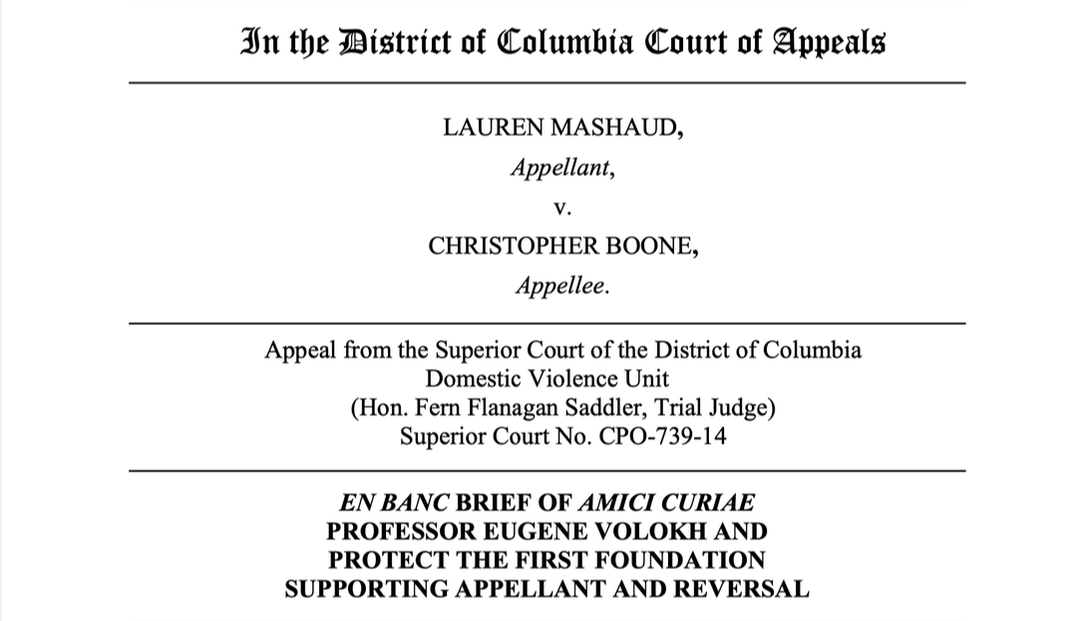|
Is speech that produces emotional injury a form of stalking? Or is speech – private speech about deeply personal matters – protected by the Constitution? The latter is the case Protect the First Foundation made before the District of Columbia Court of Appeals in a highly charged case about accusations of adultery in the workplace.
It all began when a Washington, D.C., executive, received an email from a distraught husband accusing him of having had an affair with his wife when she worked at his firm as an intern. Messages were sent by email and Facebook to the executive’s network of coworkers, family and friends. Public shaming in the digital age can be robust, vivid, instantaneous and comprehensive. But is it cause for a civil protection order? Protect the First Foundation is asking the District of Columbia’s highest court to revisit the implications of a judgment upholding a D.C. stalking statute that defines it as a crime to “directly or indirectly … in person or by any means, on two or more occasions” to communicate “about another individual” where the speaker “should have known” that such communications would cause “significant mental suffering or distress.” The D.C. law does include exceptions for constitutionally protected speech, such as protests. Thus, the depraved people who inflict emotional distress on the relatives of fallen soldiers at funerals – or neo-Nazis who parade through neighborhoods of elderly Holocaust victims and their descendants – are exercising protected speech. But people who talk trash about someone are not? If rigorously enforced, the District of Columbia might have to slap a civil order on most of its adult citizens. For those who continue to defy the law, perhaps their internment could define a new use for RFK Stadium. Fortunately, precedent points to a different conclusion. In our brief, we noted that the Supreme Court made clear in Engquist v. Oregon Dep’t Agric (2008) that government cannot “generally prohibit or punish, in its capacity as sovereign, speech on the grounds that it does not touch upon matters of public concern.” Well established First Amendment exceptions remain for libel, threats, or obscenity. But an aggrieved husband has First Amendment rights courts are bound to respect at least as much as neo-Nazis and funeral disrupters. Jonathan Yardley, former book critic of The Washington Post, defined the kernel of the issue: “The trouble with free speech is that it insists on living up to its name.” Comments are closed.
|
Archives
June 2024
Categories
All
|
ABOUT |
ISSUES |
TAKE ACTION |



 RSS Feed
RSS Feed